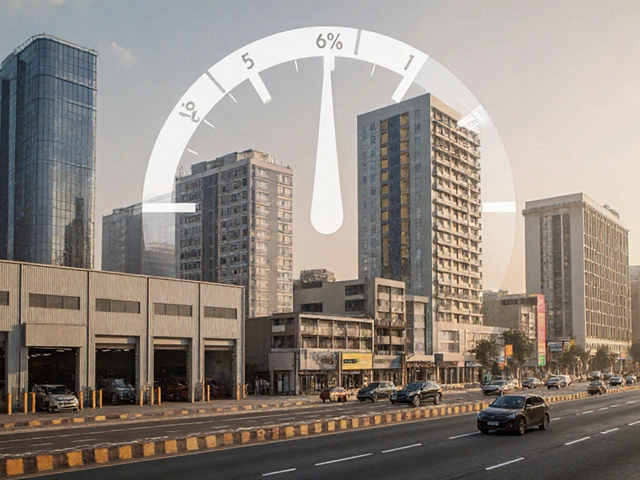Everyone’s got an opinion about NYC real estate, but there’s one question that never goes away: is it really worth it to shell out for a broker—or can you dodge that fee and still land a killer apartment? The stories are endless. Sometimes it seems like everyone knows a friend who scored a no-fee gem in Brooklyn, while someone else’s cousin paid fifteen percent of annual rent just for a broker to open a door. The stakes? High. With average Manhattan rent now hovering around $4,500 for a one-bedroom (yes, you read that right), making the wrong move can cost you thousands. Brokers in this city are a breed of their own, somewhere between lifesavers and, depending who you talk to, villains. Before you take the plunge, you’ve got to know what you’re in for.
The Role of a NYC Broker—More Than Just Opening Doors
If you think brokers just unlock apartments, think again. NYC’s rental scene is like nothing else: paperwork hurdles, co-op boards, shifting rules for rent-stabilized apartments, and armies of competing renters. A good broker cuts through the red tape, schedules showings (often in batches, saving you from whiplash-inducing commutes), and negotiates with landlords who can be… let’s say, interesting. They dig up listings you won’t find on StreetEasy or Zillow—secret stashes from landlords who only work with trusted agents. Most brokers are wired into giant group chats reserved for professionals, where hidden-off-market places pop up before the public sees them.
Now, not every apartment in NYC requires a broker. You’ll see “no-fee” listings everywhere, but here’s the inside scoop—sometimes, the landlord is absorbing the broker’s fee to attract tenants quicker in slow markets. But that’s not always the case, and during peak season (roughly May through September) most quality listings, especially in hot neighborhoods like the West Village or Williamsburg, wind up broker-only. If you have zero tolerance for paperwork hassles or you’re a first-timer in the city, the experience a good broker brings can genuinely save you time, headaches, and even money—sometimes, they can talk a landlord down on rent or snag you a small concession like a free month.
The True Cost of a Broker: Fees, Timing, and What You Get
This is where things get serious: the infamous broker fee. The standard charge is 12-15% of the annual rent—that’s $5,400–$6,750 for a $3,000-a-month place. New York is notorious for this structure compared to cities like Chicago or LA, where brokers are usually paid by the landlord. There’s definite sticker shock, but you have to weigh it against the value you’re getting. If a broker finds you an apartment quickly, negotiates a lower rent (say, $200 below asking), and keeps you from taking a week off work to chase bogus Facebook listings, the fee starts to make more sense. Their job rarely ends at handing you keys—they often help you tailor your application, line up your “guarantors” (if your paycheck isn’t up to NYC’s 40x rule), or flag issues you’d never spot alone.
Some renters try to go it alone to avoid the fee, especially if their budget is tight. But beware the time sink—scrolling endless listings and setting up showings can eat your life, especially if you work full-time (or, say, have a pet like my nosy cat Leo meowing in your ear). Broker fees also pop up in different flavors these days. With the rise of tech platforms, you’ll sometimes see “reduced fee” or “flat fee” deals. In rare cases, the landlord fully absorbs the fee—but keep in mind, these apartments often go fast or have quirks (think no elevator, outdated kitchen, or that odd smell no one will admit to).
It’s worth looking at some quick data to keep it real:
| Neighborhood | Broker Fee (Typical %) | No-Fee Listings Share |
|---|---|---|
| Upper East Side | 12-15% | About 25% |
| Brooklyn Heights | 10-15% | About 20% |
| Astoria | 10-13% | About 18% |
| Harlem | 10-15% | About 30% |
Across Manhattan, less than a third of listings are “no-fee” at any given time. In the $2,700–$4,000 a month range, your choices almost double if you work with a broker.

When a Broker Makes Sense—And When They Don’t
If you’re coming from outside New York, or you need to be in the city in under four weeks, you almost can’t avoid using a broker, unless you have friends with an inside scoop. Same goes if your credit is less-than-perfect, you’re not a citizen, or your company isn’t handling housing. Brokers know how to “package” your paperwork and tell a convincing story to picky landlords—they might even advise you to offer something extra (like several months up front) to clinch the deal. And for anyone set on a specific building, pet policy (yep, high-rise cats like Leo run into surprises here), or non-negotiable amenities like laundry or a doorman, a broker saves hours. They also come into play for specialized markets: luxury apartments, rent-stabilized units, or co-ops, where paperwork can get wild.
On the flip side, if money is tight, you’re flexible on neighborhood and can wait for the right deal, going solo or checking “no-fee” listings can work. There are now well-established resources—search platforms, hyper-local Facebook groups, and Reddit threads—where people sublet directly or find short-term places. But you have to be careful about scams. Since 2022, rental fraud complaints in NYC have gone up nearly 30%. Professional brokers, even the commission-chasers, are incentivized to protect their rep. Lose a client to a scam, and word spreads fast. You get a layer of insurance just having them involved.
Tips for Finding a Legit Broker and Avoiding Pitfalls
The worst kept secret? Not all brokers are created equal. NYC has thousands of licensed agents, but the quality varies wildly. Always check for licensing—you can look up any agent on New York’s state database. Ask friends or coworkers for referrals. If you connect with someone from a popular apartment-site listing, watch for these red flags: vague photos, pushiness (“this place will be gone in an hour unless you see it now!”), or someone who refuses to meet in the agency office or provide an agent license number. Good brokers won’t ask for a cash deposit up front.
If you’re particular, don’t be scared to “interview” a few brokers before making a choice. Ask things like, “How long have you worked this neighborhood?”, “Do you have exclusive listings?”, and “What’s the typical timeline from showing to move-in?” A solid broker will have real answers and can usually point to recent deals they closed nearby. Sign an exclusive (i.e., you only work with them) only if you deeply trust their network—otherwise, juggling a few different agents is normal in NYC. Keep in mind, once you apply for a place through a broker, their fee is often non-refundable if your application’s accepted.
You’ll also want to confirm who pays the fee—sometimes landlords split it. And always get everything in writing. Nothing derails a move faster than surprise charges or shifting terms at the lease-signing table. Ask up front if you’re expected to pay for background/credit checks (often $20–$50) and if there are any admin fees.

Making the Decision: Should You Use a Broker for Your NYC Apartment Hunt?
Let’s call it how it is: if you want the widest range of choice in the most competitive neighborhoods, using a NYC broker is often the fastest, surest bet, especially with a tight timeline. The cost stings, but for some, the fee brings peace of mind and way less aggravation. If you’re a pro at scouting listings, happy to DIY viewings, and have some time, you might land a no-fee win—but you’ll need sharp instincts. At the end of the day, New York always rewards hustle and connections. Brokers aren’t magicians, but the best ones open doors—literally and in other ways too.
So, whether you roll the dice without a broker or pay for guidance, know exactly what you’re after. If you need a place that’s pet friendly (Leo’s not the only one picky about windowsills), close to your work, or just big enough to stretch after a subway ride, get clear about your needs. Don’t let the fee alone drive your decision. It’s not just about money—it’s about how you value your sanity in one of the wildest real estate jungles on the planet. And with luck, the right move—broker or not—gets you a home you actually want to brag about.






